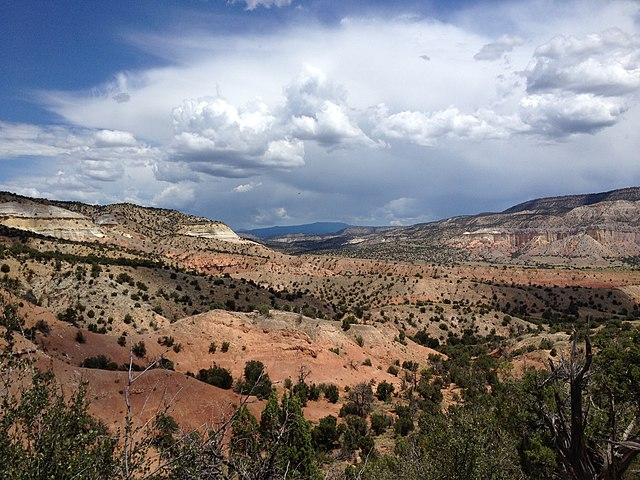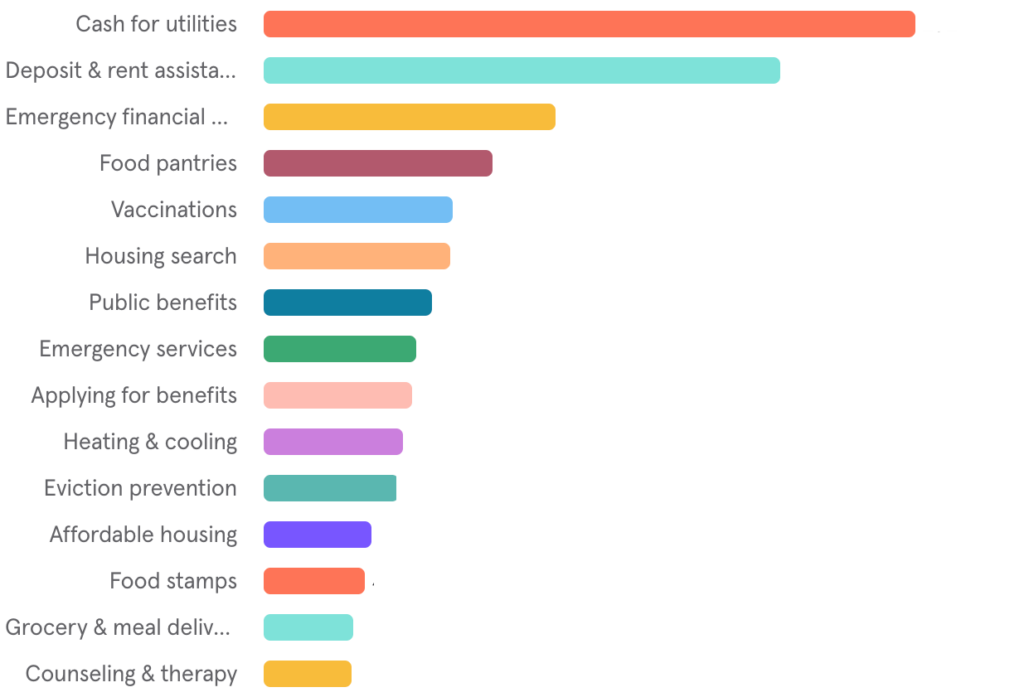
Aptly named “The Land of Enchantment,” New Mexico is known for its beautiful landscapes, from the Chihuahuan Desert to the Sangre de Cristo Mountains to the High Plains in the east. The state’s rich cultural and demographic diversity also captivates: with a population of 2.1 million — 50.2% of whom are Latino or Hispanic — and home to 23 federally recognized tribes, New Mexico ranks among the most diverse states in the U.S.
At the same time, New Mexico’s cultural and physical landscapes intertwine with economic and healthcare disparities that affect hundreds of thousands of New Mexicans: 25% of the population lives at or below the federal poverty level and 43% are enrolled in Medicaid. The state also reports elevated rates of obesity, diabetes, and diseases of despair—including significant suicide and alcohol-related deaths. Furthermore, a third of the population resides in rural areas that consistently suffer from practitioner shortages, underscoring an urgent need for social care networks that meet the unique needs of rural communities.
A Rural Gateway to Resources for Children and Families
“Big city issues with small town resources” is how Dr. Brian Etheridge, a pediatrician who has worked in Grant County for sixteen years and most recently for six years at Hidalgo Medical Services (HMS), described the healthcare challenges in rural Southwestern New Mexico. During his tenure, he saw the health issues his patients and their families faced grow hand-in-hand with healthcare practitioner shortages. Notably, when Dr. Etheridge arrived in Silver City, he was just one of four pediatricians serving all of Grant County; a decade and a half later, he was the last. Issues related to social determinants of health, such as substance abuse, poverty, and lack of access to care and transportation, have skyrocketed during the past several years.
It was these obstacles that compelled One Degree to partner with HMS to expand access to vital resources in the community. In 2020, One Degree Southwest New Mexico was born.
The impetus for the project arose from a series of conversations initiated by Dr. Etheridge and Alicia Edwards, the Coordinator for Healthy Kids Healthy Communities Grant County and Grant County Commissioner. Wanting to bridge the gaps between healthcare practitioners and those addressing the social determinants affecting health in the community, they convened a series of multidisciplinary meetings that included a range of healthcare providers, therapists, childcare providers, and community partners.
From these conversations, a central theme emerged: the lack of access to resources for both families and providers. Reflecting on these discussions in a presentation to the state’s Legislative Health & Human Services Committee, Ms. Edwards stated, “It is a constant and unending struggle for families and providers to find resources — there are never enough resources, we cannot access the existing resources, and it is very difficult to navigate the existing system.”
Equipped with a shared understanding of the problem, the group sought to create a comprehensive resource guide, transitioning from an outdated paper-based system to a digital platform accessible to both families and practitioners. With a leadership grant from the Robert Wood Johnson Foundation, Dr. Etheridge and HMS introduced One Degree’s public, community-resource platform to Southwest New Mexico.
In this region, many residents lack broadband access, but cell phone usage is prevalent. This made One Degree’s mobile-friendly platform an attractive choice for connecting individuals to housing, food, and other basic needs services. The technology’s ease of use and ability to send resources directly to clients’ phones also made it a valuable tool in bridging access gaps in the community. Additionally, One Degree incorporated local as well as state and national-level resources and provided a dynamic, regularly updated database that could be improved and refined based on community feedback.
One Degree’s Impact in New Mexico
Since 2021, One Degree has served 21,290 users in various locations, from rural counties like Grant, Catron, and Hidalgo to the metro areas of Albuquerque and Santa Fe. By providing access to over 500 local resources, the platform supports both front-line workers and community members in finding critical services and benefits for all age groups.
This extensive reach — especially the ability to bridge service and public health gaps in rural zones — is directly linked to One Degree’s mission and capacity as a nonprofit provider. While community care technology has immense potential to bridge resource gaps, privatized solutions often proliferate in densely populated areas where higher usage and funding yield larger revenue streams and profits.
Furthermore, federal and state-mandated initiatives often fail to incorporate the input of community members and community-informed providers in rural areas.
“We believe that trust and sustainability are critical to social net infrastructure,” said One Degree CEO Rey Faustino. “If social care technology goes unused due to misalignment with cultural and community needs, impact, trust and funding can be lost. Partnering with those who deeply understand the community allows us to remain adaptable, and by promoting open access to our resource technology, we create an essential feedback loop between us, community members, and providers that enhances the platform, expands its reach and solidifies One Degree as a definitive public good.”
Dr. Etheridge also emphasizes the advantages of the One Degree approach. “One Degree is the only system I’ve seen where you can easily get information in front of patients and their families. This is crucial, especially in rural areas where people know each other and hesitate to engage neighbors or relatives for their health and social needs. What’s remarkable about One Degree is that it allows us to present information informally. I frequently found myself providing WIC and childcare resources right from the platform. My patients didn’t have to engage with community health workers or care coordinators first to access this resource; it was readily available. And, in cases where families needed to be walked through using the platform, I’d often just talk about it, print something from the site, and they’d take the info and run with it. It’s impressive how quickly this can happen during a clinical visit.”
Top 15 Searches on One Degree Southwest New Mexico (as of September 2023)

The search data of One Degree platform continually provides feedback about the evolving needs of New Mexico’s communities. With 6,575 searches revealing diverse and interconnected needs that no single organization can meet, One Degree data — gathered directly from the public’s independent access to the platform — not only gives visibility to the complexity of community needs, but also underscores the platform’s pivotal role in effectively responding to and addressing them.
A Beacon for the Future: Open Care Networks
Despite the positive strides made by dedicated healthcare providers like Dr. Etheridge, the regionally delivered services of HMS, and the relentless efforts of community providers supporting families daily, significant hurdles to accessing safety net resources persist both in New Mexico and nationwide. One Degree Southwest New Mexico is just one step among many necessary to expand and fortify opportunities for rural communities.
Nevertheless, One Degree sees its regional platform as a beacon—a compelling demonstration of how collaborative, cross-sector partnerships can effectively bridge service gaps by responding to communities at the local level. The platform also highlights how important it is for safety net technologies, which are often publicly funded, to engage directly with both those providing vital services and those using them. When community-resource platforms are open and accessible in this way, it empowers entire networks of care to grow, learn, and succeed collectively. With this approach, One Degree strives to ensure that safety net technology genuinely serves the public and delivers what communities need.
Also published on Medium.
